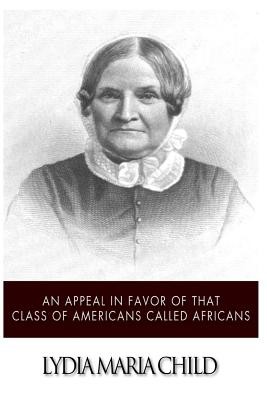
- We will send in 10–14 business days.
- Author: Lydia Maria Child
- Publisher: CreateSpace Independent Publishing Platform
- Year: 2014
- Pages: 144
- ISBN-10: 1499792689
- ISBN-13: 9781499792683
- Format: 15.2 x 22.9 x 0.8 cm, minkšti viršeliai
- Language: English
- SAVE -10% with code: EXTRA
An Appeal in Favor of That Class of Americans Called Africans (e-book) (used book) | bookbook.eu
Reviews
Description
Slavery existed long before the United States of America was founded, but so did opposition to slavery. Both flourished after the founding of the country, and the anti-slavery movement was known as abolition. For many abolitionists, slavery was the preeminent moral issue of the day, and their opposition to slavery was rooted in deeply held religious beliefs. Quakers formed a significant part of the abolitionist movement in colonial times, as did certain Founding Fathers like Benjamin Franklin. Many other prominent opponents of slavery based their opposition in Enlightenment ideals and natural law. Lydia Maria Child was an American abolitionist and Women's rights activist. Her journals, fiction and domestic manuals reached wide audiences from the 1820s through the 1850s. She at times shocked her audience, as she tried to take on issues of both male dominance and white supremacy in some of her stories. After reading the writing of William Lloyd Garrison, she and her husband became ardent abolitionists. Her book, An Appeal in Favor of That Class of Americans Called Africans, was published in 1831. In it, she argued from a historical, political, economic, legal, but especially, a moral standpoint for the immediate emancipation of all slaves without compensation to the slaveholders. She is believed to be the first white person to author a book in support of that policy. The book was the first anti-slavery work printed in America in book form, and she followed it up with several smaller works on the same subject.
- Author: Lydia Maria Child
- Publisher: CreateSpace Independent Publishing Platform
- Year: 2014
- Pages: 144
- ISBN-10: 1499792689
- ISBN-13: 9781499792683
- Format: 15.2 x 22.9 x 0.8 cm, minkšti viršeliai
- Language: English English
Slavery existed long before the United States of America was founded, but so did opposition to slavery. Both flourished after the founding of the country, and the anti-slavery movement was known as abolition. For many abolitionists, slavery was the preeminent moral issue of the day, and their opposition to slavery was rooted in deeply held religious beliefs. Quakers formed a significant part of the abolitionist movement in colonial times, as did certain Founding Fathers like Benjamin Franklin. Many other prominent opponents of slavery based their opposition in Enlightenment ideals and natural law. Lydia Maria Child was an American abolitionist and Women's rights activist. Her journals, fiction and domestic manuals reached wide audiences from the 1820s through the 1850s. She at times shocked her audience, as she tried to take on issues of both male dominance and white supremacy in some of her stories. After reading the writing of William Lloyd Garrison, she and her husband became ardent abolitionists. Her book, An Appeal in Favor of That Class of Americans Called Africans, was published in 1831. In it, she argued from a historical, political, economic, legal, but especially, a moral standpoint for the immediate emancipation of all slaves without compensation to the slaveholders. She is believed to be the first white person to author a book in support of that policy. The book was the first anti-slavery work printed in America in book form, and she followed it up with several smaller works on the same subject.


Reviews